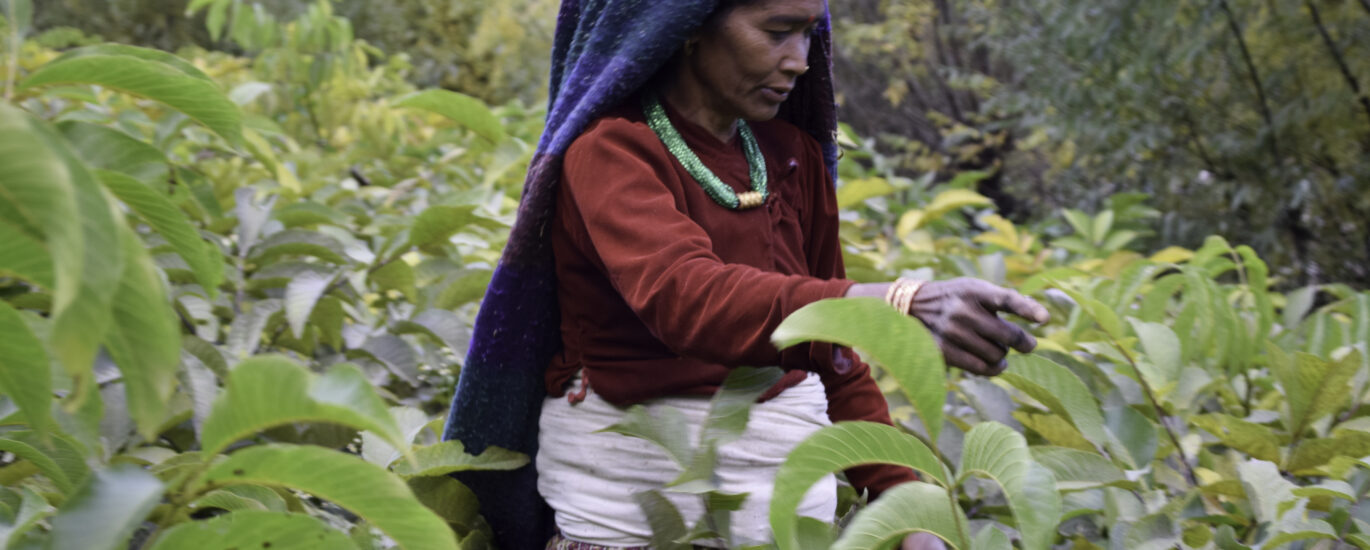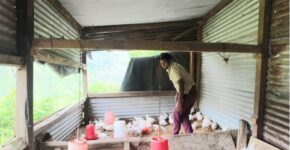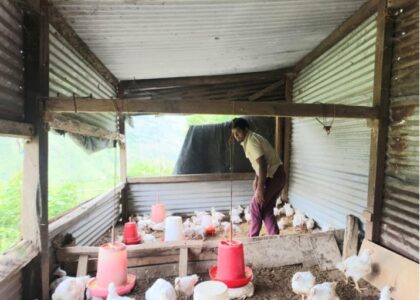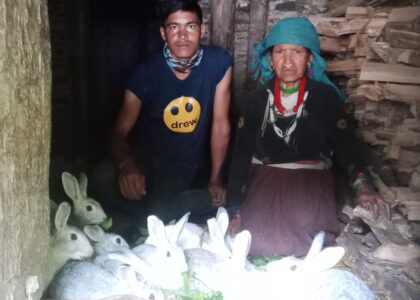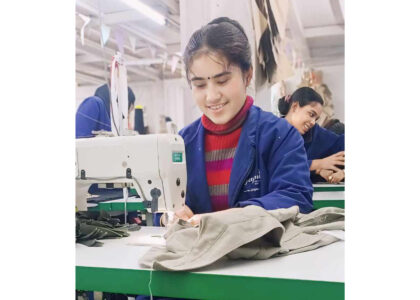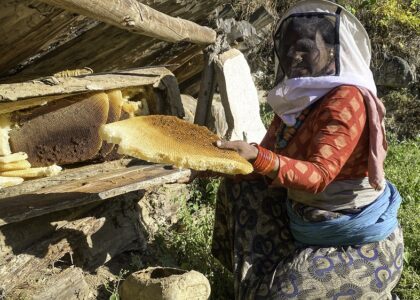Apple comes to everyone’s mind when we hear Jumla. Jumla is equally famous for delicious apples, walnuts, almonds, and potatoes. But these fruits are not found everywhere. People buy small plants from a nursery and plant them in the fields or gardens around their homes. Kanakasundari-2 Malika Bota, of Jumla, Kali Raut (55 years old), is a businessperson who grows the plants and sells fruit plants through a nursery.
Kali Rawat has been running the nursery for the last three years. The name of the nursery is kept as ‘JP Fruitful Nursery’ with the first letter of the English alphabet from her and her husband’s first name, ‘Janak’. While going out of the house, she found her neighbor, and the villagers brought a small plant worth Rs. 1000. She herself bought some nursery plants to plant in her garden. After realizing the high value of such small plants, she decided to pursue the dream of starting her own nursery.
When there was a lack of proper knowledge, training, and resources, her dream remained confined to mere aspirations. However, three years ago, after the COVID crisis, when she learned about the support for education and resources offered by the Srijana Project for starting a business in her village, a ray of hope emerged in her as she actively joined the project.
Initially, she received a 15-day training in operating a nursery farm in her village. The training marked the first step in realizing her dream. After the training, she received assistance in establishing the nursery on her own. Having good soil and water resources, she turned a piece of her backyard into a nursery. The project provided the necessary materials for planting seeds and saplings of various fruit and flower varieties.
In the first year, she started the nursery with a few saplings of guava. Despite the loss of many guava plants and a fluctuating market price, she persevered and learned many things over time. She gradually added other varieties of saplings to the nursery. With adequate knowledge about the appropriate care for guavas and the prevention of diseases, she gained recognition for her quality produce. She states, “I spent the first year learning how to care for saplings and understand the behavior of guava plants from nearby sources.”
In the second year of the business, although there wasn’t a significant profit, she managed to recover from the losses of the previous year and sold saplings worth over Rs 1.5 lakh. Now, in her third year, her nursery is thriving. She has prepared over 450+ saplings of almonds, guavas, walnuts, and potato seedlings for sale.
Initially, with the support of the Srijana project, she planted around 3,000 saplings. She says, “The process of watering and fertilizing lacks perfection, resulting in many saplings dying.” The diseases and prevention of diseases in botany are not well known, causing the death of some saplings. The initial experience of starting the nursery made her realize the importance of training. Recalling the time of the training, she says, “The training process was a bit uneventful. The training was conducted at the end of Chaitra, and it was already off season by the end of training, while I was thinking of starting a nursery after the training.”.
Although there was not much business in the first year, last year sales improved and we sold one and a half lakh worth of saplings. She is more hopeful that this year she will get more income from the nursery, which currently has 450 saplings. At present, almond seedlings are traded at 100 rupees, apple seedlings at 40–50 rupees, walnut seedlings at 700–1000 rupees, and potato seedlings at 100 rupees. She focuses on non-apple plants, as they fetch good market prices.
She has only one thing on her mind: if she had started the nursery business 10 years ago, something would have happened by now. She says, “Shit! I’m getting older; I’m getting older day by day; it’s too late to start a business.” However, she is thinking of expanding her nursery gradually. She has also planted salable saplings in the nursery and is thinking of adding others as well.
If she gets training about techniques like drip irrigation and plant diseases and problems, she can further expand the nursery and earn more profits. As it is said, “When there is will, there is a way,” she achieved her goal of becoming a nursery entrepreneur despite her age due to her dedication and strong willpower. At that time, she was shocked to hear about 1000 rupees for one sapling. Today, she sells saplings to her buyers at more than hat price. She is very grateful for her work and the Srijana project for being able to fulfill her dream at her own home.


